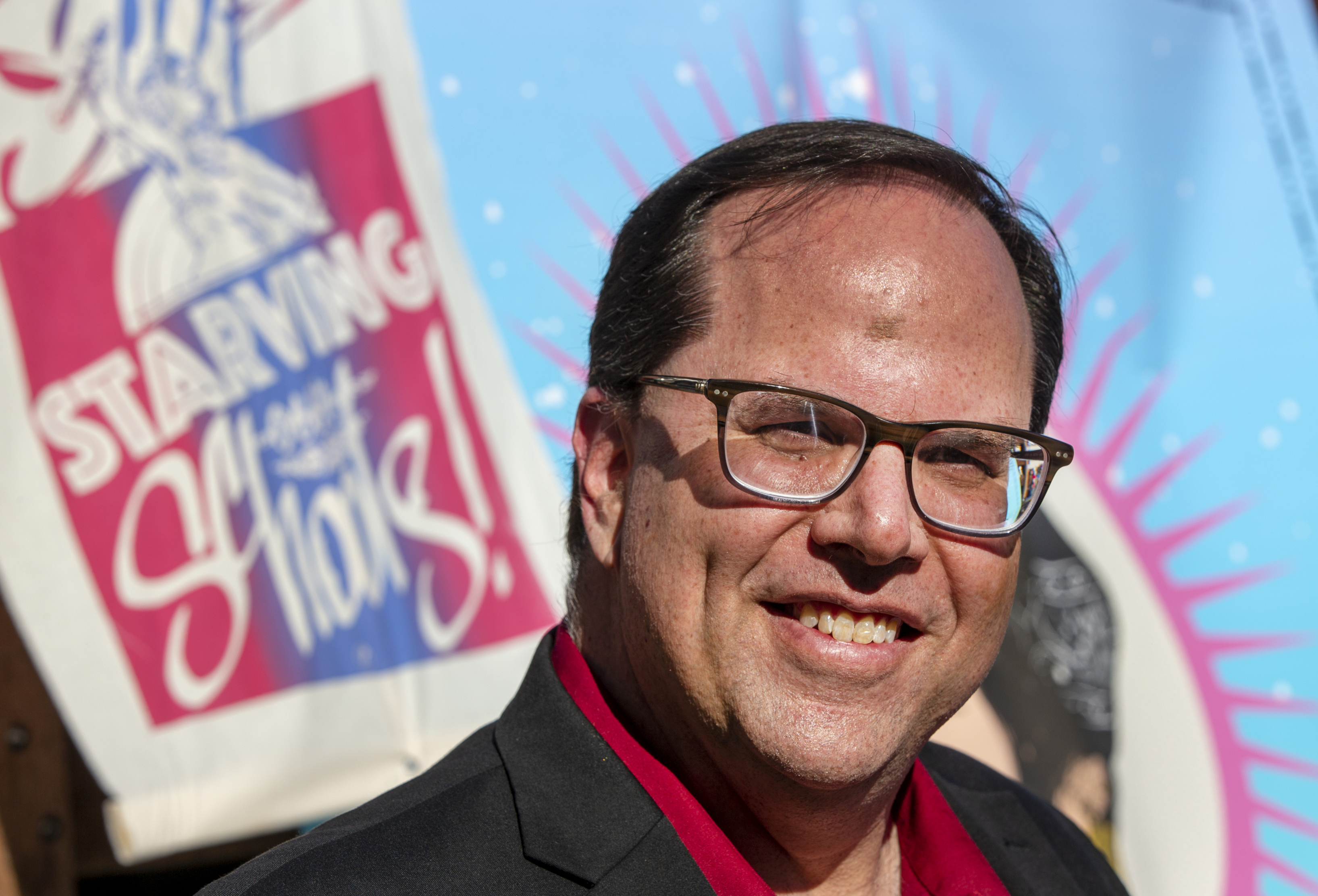L.A. teachers in open rebellion – this time against their own union leaders
 Union chief Caputo-Pearl: “This agreement is horrible,” a teacher wrote on UTL:A’s Facebook page. “It was not worth striking 7 minutes let alone 7 days!!! Our union has let us down once again.” (AP Photo/Damian Dovarganes)
Union chief Caputo-Pearl: “This agreement is horrible,” a teacher wrote on UTL:A’s Facebook page. “It was not worth striking 7 minutes let alone 7 days!!! Our union has let us down once again.” (AP Photo/Damian Dovarganes)
LOS ANGELES — L.A. teachers on Tuesday voted on a deal their union calls “historic.”
But by then, the United Teachers of Los Angeles Facebook page was a scene of something completely different: open rebellion. Thousands of teachers engaged the UTLA page to ridicule the 40-page agreement, the few hours they were given to read and vote on it, even the seven-day strike that preceded it.
A few messages of support for the United Teachers of Los Angeles leadership and its deal with LA Unified were overwhelmed by an outpouring of anger and confusion on Facebook. One teacher asked, “This is the historical agreement ????? This is the same as what they had January 11!!!” She concluded with the hashtag #iwantmy6daysthatiwastedonthisback.”
“The classroom sizes are still atrocious,” said another teacher. “No, thank you!” Yet another jumped in: “1 less student won’t make a difference!! I am voting NO to this tentative agreement!!” “I feel so very disappointed! We really didn’t need to strike at all!!! #SadTeacher#NotSatisfied.”
There were recurring themes in the discussion threads: the final agreement is “a joke,” “a total disappointment!” and “we were hoodwinked,” many commented.
One unusually candid observer said the short window during which teachers were allowed to read and vote on the deal was “purposeful.” Among other obstacles to voting on the package: UTLA required teachers to vote at their respective schools – during L.A.’s legendarily bad rush hour, sometimes miles from their homes. “It was obviously a shitty deal when they told you guys you only had hours to vote,” he said.
UTLA president Alex Caputo-Pearl came in for an abundance of criticism. Responding to teachers who complained about losing seven days of pay during the walkout, one teacher said, “And remember… Alex still got his paycheck the whole time.” Said another: “We need new UTLA stronger leaders!!” “We need our own union that’s understands where we are coming from!!” said another. “I’m actually pissed at Caputo for implying that we should agree!” Discouraged by the day’s whirlwind announcements, many teachers echoed the sentiments of one who wrote, “I don’t count at all.”
“This agreement is horrible,” wrote a teacher who expressed the sense of many. “It was not worth striking 7 minutes let alone 7 days!!! Our union has let us down once again.”
The outrage is understandable. Caputo-Pearl had told the district’s 30,000 teachers that walking out of classrooms was their only leverage in battling district officials who had said the union’s demands would bankrupt the district.
In fact, the final agreement shows the strike – which cost the district $151 million– did almost nothing to advance the district’s pre-strike offer.
Here’s a breakdown of the key deal points:
PAY
UTLA had denounced LAUSD’s pre-strike offer of a six-percent raise as “insulting. ” By Tuesday, UTLA had settled for six-percent. Not one dime in extra pay for the teachers.
CLASS SIZE
Before the strike, LAUSD had offered to reduce class sizes by two students and up to four students at some “high-need” schools. The new agreement is somewhat vague, but appears to reduce class size by one student per year for three years. That represents no change in the contract covering 2014-2017.
It’s unclear how the district will pay for even those small reductions. The district had said the paltry reduction in class size would cost $130 million an amount Los Angeles County officials – charged with overseeing LAUSD’s finances – said would drive the district toward bankruptcy. Caputo-Pearl has said a new parcel tax will be necessary to cover the costs, and predicted that the district will benefit from UTLA’s 2020 ballot initiative to end Prop. 13.
District officials did capitulate on one class size issue. For years, it has used class size to cut costs – packing more kids into classrooms reduces the need to hire more teachers, the key cost-driver in the district. On Tuesday, LAUSD officials said they will raise class sizes only in consultation with the teachers union. Falling district enrollmentmay reduce class sizes without help from outside players.
CHARTER SCHOOLS
Caputo-Pearl has led savage attacks on public charter schools, launching lawsuits against the schools and declaring their growth “unregulated” and “privatization.” In fact, charters are regulated in precisely the way a union-run school is – with one key exception: teachers in charters are not required to join Caputo-Pearl’s union. That means less union dues revenue, of course, and explains why the union president regards charters as an “existential threat.” The final agreement had nothing to say about charter schools – except that district trustees may consider a nonbinding resolution to limit their expansion.
SCHOOL SAFETY
UTLA has said it won a “real investment in school safety.” While LAUSD agreed to place a full-time nurse in every school, the final deal also agreed to end random searches of students at 28 schools. Not searching students will please those who want to carry guns or drugs into schools, but will do nothing to improve school safety. Indeed, it seems more likely these 28 schools will be less safe.
To add insult to injury, striking teachers will not be paid for their time out of the classroom, and the district’s revenue loss in that seven days could cover classroom size-reductions for two years. And though Caputo-Pearl said Tuesday “a vast supermajority” of teachers were voting to approve the deal, he hasn’t agreed that he will release vote totals.
In the end, it’s not clear what teachers voted for: their faith in their union president’s rhetoric, the actual deal, or simply out of frustration with a strike that produced little and is now – for these teachers, at least – best forgotten.
Mark Bucher is CEO and cofounder of California Policy Center.
